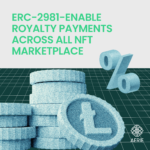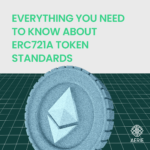How Traditional Money Influx Through Bitcoin ETFs

The recent price swings in the crypto world have mainly been influenced by regulatory news and the introduction of new products. Today, we’re going to focus on the recent application of the Bitcoin ETF by multiple investment companies and how the influx of traditional money can serve as a powerful catalyst to kick in adoptions in the crypto space.
Who are These Investment Companies
So, who exactly are these investment companies? These heavyweights might not ring a bell unless you’re deeply immersed in the financial world. We’re referring to the big players currently applying to launch Bitcoin spot ETFs, such as BlackRock, Fidelity, ARK, Invesco, and Wisdomtree, to name a few. To give you a sense of their scale, some funds manage assets whose total value surpasses the entire crypto market capitalization. For instance, while the total crypto market capitalization hovers around $1.18 trillion, BlackRock manages a staggering $8.6 trillion in assets alone. This stark comparison underscores the relative infancy of the crypto market when juxtaposed with traditional financial markets. The recent flurry of Bitcoin spot ETF filings and re-filings by these financial behemoths is seen as a potential tipping point for traditional funds to make their foray into the crypto market. Leading the pack is BlackRock, which boasts an impeccable track record in ETF applications. Other funds are following suit by refiling their applications in tandem with BlackRock’s moves. Now that we’ve set the stage let’s delve into what this all means.
What is ETF? Spot ETF vs. Futures ETF
An Exchange-Traded Fund (ETF) is an investment fund and exchange-traded product that tracks the performance of a specific asset or group of assets. In the context of a Bitcoin ETF, it would track the price of Bitcoin. The difference between a Spot ETF and a Futures ETF lies in the underlying asset they hold. A Spot ETF directly holds the asset it tracks — in this case, Bitcoin — while a Futures ETF holds futures contracts, not the actual asset. The preference for a Spot ETF over a Futures ETF stems from the fact that Futures ETFs involve futures transactions, which can lead to more price volatility and higher costs. On the other hand, a Spot ETF truly invests by holding the underlying asset, offering more direct exposure to the asset’s performance.
Why Would Investors Choose BTC ETF?
1. Ease of Access
Let’s start with the most obvious advantage — accessibility. For traditional investors, nothing beats the convenience and familiarity of investing in stocks, ETFs, or other financial instruments on exchanges like CBOE, Nasdaq, NYSE, and so on.
Introducing BTC ETFs allows these investors to add Bitcoin to their portfolios using the same accounts, procedures, and regulations they’re accustomed to. This is particularly beneficial for institutional investors who are often bound by stricter regulations. Now, they can invest in Bitcoin as effortlessly as they would in tech giants like Tesla or Amazon. For retail investors, imagine being able to buy Bitcoin ETFs through your regular bank. This opens up the world of Bitcoin investment to a much wider audience, including those who may not have the time or inclination to navigate the complexities of crypto exchanges, for example, our parents!
2. Barrier Reduction
One of the main hurdles to investing in Bitcoin is the learning curve and operational barriers. Questions like “Where can I buy Bitcoin?” or “How do I store Bitcoin?” can be daunting for newcomers. Buying Bitcoin on a crypto exchange might be relatively straightforward, but if you’re looking to invest a significant amount, using a self-custody wallet becomes necessary, adding another layer of complexity.
The introduction of Bitcoin ETFs eliminates these barriers, making Bitcoin investment accessible to those who may not have the time or desire to learn the intricacies of the crypto world. It is so market-ready and suitable for a broader scope of customers. Ready for grab-and-go!
3. Trust Factor
Remember the FTX debacle that triggered a bear run in the market and raised trust and regulatory concerns? The bankruptcy documents revealed that the exchange owed customers $1.6 billion in Bitcoin but only had $6 million on hand. This discrepancy raises the question: how can I ensure that I’m getting what I paid for? The answer lies in trust.
Trust in the issuing company, trust in BlackRock. The world’s largest asset management company is issuing a Bitcoin Trust. For traditional investors, BlackRock is a far more trustworthy entity than any centralized crypto exchange. The mere presence of these well-known asset management companies and mutual funds in the Bitcoin ETF space can attract traditional investors to the market.
4. Without Custody Concerns
For blockchain and Bitcoin enthusiasts, owning and controlling Bitcoin is a crucial part of the investment process. Deciding whether to buy on a CEX or DEX or whether to store Bitcoin in a hot or cold wallet requires careful consideration.
However, for many potential investors, the actual ownership of Bitcoin is less important than the opportunity to invest in it and make a profit. Bitcoin ETFs provide a way for these investors to gain exposure to Bitcoin without having to worry about custody decisions. They can focus on diversifying their portfolios and earning a decent return on their investment.
Impacts of Approved BTC Spot ETFs
1. Traditional Money Influx
The first and most apparent impact is the massive influx of traditional money. Given the reasons we’ve discussed, measuring how much capital could flow into the crypto market is complicated. The entire market capitalization of the crypto industry is minuscule compared to the traditional market. For instance, Apple alone is worth more than twice the entire crypto industry. Many asset management companies manage funds larger than the whole crypto market. Given the growing popularity of cryptocurrency as a diversification tool, it’s not hard to imagine a significant influx of capital.
2. Bitcoin and Top Alt Coins Pumping
So, which cryptocurrencies stand to benefit the most? Bitcoin is the clear frontrunner. Most of the Spot ETFs filed are Bitcoin Spot ETFs, which invest directly in Bitcoin, not in its indices or trackers. The inflow of capital into Bitcoin ETFs could cause the price to skyrocket, as the funds would be used to purchase actual Bitcoin held in custody by these asset management companies.
Investors may also diversify their crypto portfolios with other cryptocurrencies like ETH, LINK, POLYGON, etc. Altcoins that are on the path to regulation and have been around for a while could also be attractive to investors. Therefore, the top 20 altcoins could also see a potential rise in addition to Bitcoin.
3. Bringing Up Other Fields, like RWA, NFT
Investing in Bitcoin through ETFs gives traditional investors a glimpse into the blockchain world. With the success of Bitcoin investment, these market leaders may explore other areas of blockchain.
Real World Assets (RWA) is one concept that has piqued the interest of asset managers. Assets like stocks, bonds, and commodities can all be tokenized and invested in DeFi in an on-chain manner. For instance, on-chain yield platforms like MakerDAO and Compound have recently been working on tokenizing US Bonds, creating a structured product for investing in US bonds on-chain. Regarding the recent yield of US bonds, the risk-free 5% annual percentage yield is very tempting, surpassing the significant current on-chain yield earnings. Tokenizing valuable assets on-chain can protect their ownership and value. I’m sure these asset management companies would like to explore this new line of service and income stream.
In the future, we can cover an article about ongoing RWA protocols to see how RWA is currently developed. Stay tuned for that!
4. Kick Start the Bull Momentum of the Crypto Market
Lastly, the approval of Bitcoin Spot ETFs could potentially trigger a bull momentum in the crypto market. The crypto market has been bearish since the start of the year, with Bitcoin’s price dropping from its all-time high. However, the approval of Bitcoin Spot ETFs could reverse this trend. The influx of traditional money into the crypto market could drive up the price of Bitcoin and other cryptocurrencies, leading to a new bull run. This isn’t mere speculation, as we’ve seen similar trends in the past when new financial products related to Bitcoin were introduced. Therefore, the approval of Bitcoin Spot ETFs could be the catalyst for the crypto market to ignite a new bull run.
Wen Good News?
The giants of asset management, Fidelity, ARK, Invesco, Wisdomtree, etc., have recently refiled their applications for launching Bitcoin Spot ETFs. This move was initiated by BlackRock, which submitted its first filing, the iShares Bitcoin Trust, in June 2023. Before this, ARK Invest and 21 Shares had refiled the ARK 21Shares Bitcoin ETF in April 2023.
According to the Securities and Exchange Commission’s (SEC) response schedule for these filings, we can expect a response for ARK Invest and 21 Shares’ filing by August 13, 2023, and for BlackRock’s filing by September 2, 2023. However, it’s worth noting that the SEC can provide a response earlier than these deadlines. Therefore, we can anticipate more news and updates around mid-August.
Rejection?
In a surprising turn of events, the Securities and Exchange Commission (SEC) has swiftly turned down applications for a spot Bitcoin ETF from financial heavyweights such as BlackRock and Fidelity and several other asset managers a mere two weeks post-filing.
However, this quick response could be interpreted as a positive sign. The fact that the SEC chose to respond within two weeks rather than utilizing the full 45-day decision-making window could indicate that the agency is primed to greenlight the product. Previous rejections were often due to concerns about potential fraud and market manipulation. This time, however, the SEC cited a lack of sufficient information regarding “surveillance-sharing agreements” with a Bitcoin exchange as the reason for rejection, as the Wall Street Journal reported.
The SEC’s feedback provides clear guidance on what was lacking in the applications, enabling the applicants to address these specific issues and resubmit their proposals. This essentially signals that the SEC is on the brink of approval, pending these adjustments!
Final Thoughts
Please remember that this is not financial advice encouraging you to impulsively dive into the crypto market or invest in specific cryptocurrencies. I’m merely sharing my perspective on the filing of BTC spot ETFs, particularly those submitted by major players in the industry, which could potentially trigger a significant wave of adoption. It’s thrilling to see an increase in news and dialogue surrounding the crypto market. So, buckle up and prepare for the ride ahead!









